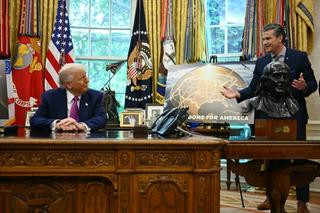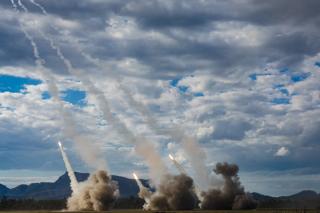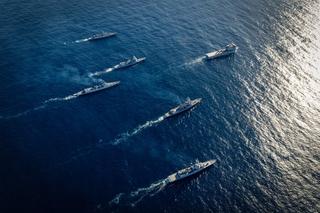Earlier this month, Russian President Vladimir Putin travelled to Pyongyang to meet with his counterpart, North Korean Supreme Leader Kim Jong Un. On 19 June, Putin and Kim signed the ‘Treaty on Comprehensive Strategic Partnership between the DPRK and the Russian Federation’ (CSP), the most significant and far-reaching agreement between the two states in the post-Cold War era. The treaty commits Russia and North Korea to increase cooperation across the security, political and economic domains.
Expert analysis has focused on two features of the treaty. The first is Article 4, which commits both sides to ‘provide military and other assistance’ in response to ‘an armed invasion from an individual state or several states’ — terms that read like a mutual defence pact. The second is Putin’s comment during a press conference in Pyongyang given shortly after the CSP was signed in which he threatened to use this treaty as a vehicle to pursue “military and technical cooperation” with North Korea if the West continues arming Ukraine with long-range strike capabilities.
One area that has thus far been overlooked is the implications of the CSP for the economic sanctions regime against North Korea. Sanctions are presently the primary tool deployed by the international non-proliferation community to compel North Korea to abandon its nuclear weapons and ballistic missile programs, and the CSP offers fresh challenges to these efforts, including Russian critiques of international sanctions regimes and Russian and North Korean commitments to cooperate in reducing the impact of sanctions. In this piece, I evaluate the implications of the CSP for the international mission to denuclearise North Korea through economic sanctions.
Background
Following North Korea’s withdrawal from the Treaty on the Non-Proliferation of Nuclear Weapons (NPT) in 2003, it has been engaged in a steady program of nuclear weapons and ballistic missile development aimed at bolstering the military bona fides of the Kim regime, providing additional leverage in negotiating on favourable terms a peace treaty with South Korea, and deterring what it perceives as a genuine threat of a US-led invasion.
As these capabilities have developed, Pyongyang has increasingly deployed them to support a regionally destabilising foreign policy, including through frequent threats of nuclear strikes against regional states (including Australia), and using nuclear deterrence as a shield to launch conventional provocations such as the 2010 sinking of a South Korean corvette, killing 46.
Attempting to stem these destabilising actions, states in the Indo-Pacific have, for the last 20 years, considered various strategies for denuclearising North Korea, ranging from regime change to allaying North Korean security concerns to economic coercion, i.e. convincing Pyongyang that the perceived possibility of military invasion is preferable to the certainty of economic collapse. Regime change carries several risks, most notably the risk of provoking nuclear retaliation from the North Korean military. There also isn’t much optimism for a strategy of denuclearisation through security guarantees given the multiple failed negotiations of the past and the domestic political importance that the regime now attaches to its nuclear weapons. This leaves economic coercion as the last practical path to denuclearising North Korea.
Reflecting this logic, since 2006 the UN Security Council has adopted 15 separate resolutions prohibiting a wide range of economic, scientific and military cooperation with the totalitarian state. UN sanctions have been supplemented by autonomous sanctions by individual states, including the United States, European Union, Japan, Canada and Australia. Among these autonomous measures, the United States has undoubtedly instituted the most robust and punishing regime, in particular through its use of ‘secondary sanctions,’ which involve threatening third parties — foreign banks, traders, insurers, etc. — with severance from the US financial system if they engage with North Korean entities, further isolating North Korea from international markets. These UN and autonomous sanctions have, in all likelihood, slowed North Korea’s development of nuclear, missile and conventional military capabilities but they have not led to North Korea giving up its nuclear weapons.
The sanctions option for denuclearising North Korea is now at a crossroads. In 2022, China and Russia began using their veto in the Security Council to block the expansion of UN sanctions, and Chinese and Russian state and non-state actors are violating UN sanctions with such frequency that they, on their own, are unlikely to provide sufficient leverage to compel North Korean denuclearisation. This shifts the burden of economic coercion to autonomous sanctions, in particular US secondary sanctions. Yet, these too are no panacea, proving politically and functionally difficult to implement and enforce.
Enter the Comprehensive Strategic Partnership
In signing the CSP, Putin was careful not to commit to outright violations of UN sanctions. While many of the areas in which he committed to expanding cooperation would be considered extremely high risk for UN sanctions violations (discussed further below), none constitute a clear-cut violation. In fact, Putin demonstrated a particular awareness of UN sanctions through his reference in his press conference in Pyongyang to Russian efforts to transit coal to China through the North Korean port of Rajin, an arcane carveout of the North Korean coal ban buried in paragraph 8 of UN Security Council Resolution 2371.
Of course, this attentiveness to UN sanctions contradicts the many reports of UN sanctions violations by Russian state and non-state actors, including recent reports — which Russia denies — of Russian procurement of North Korean ballistic missiles for use in Ukraine, an act explicitly sanctioned under Resolution 1718, which prohibits UN member states from procuring ‘missiles or missile systems’ from North Korea. However, it is telling that Putin would attempt to maintain the façade of Russian compliance with UN sanctions in his rapprochement with North Korea. Perhaps this represents an effort to maintain an air of international legitimacy in Russian foreign policy. Alternatively, it may signal a desire to not entirely sideline the UN Security Council, due to the perceptions that its continued legitimacy in adjudicating matters of international security is in Russia’s long-term interest given that it is a forum in which Russia enjoys veto powers.
However, two caveats must be made in this context. Firstly, in a press conference given in Hanoi two days after the CSP was signed, Putin declared, “We reserve the right to supply our weapons to various regions of the world. I do not exclude that it will be done under the agreement with the DPRK.” Any such provision of ‘weapons’ would constitute a violation of paragraph 6 of Resolution 2270, which sanctions the provision to North Korea of “all arms and related materiel” as well as “financial transactions, technical training, advice, services or assistance related to the provision, manufacture, maintenance or use of such arms and related materiel.” Thus, while Putin is currently unwilling to commit in writing to violating UN sanctions, he is certainly not above threatening it.
Secondly, Putin’s nominal deference to UN sanctions did not carry over to his views on autonomous sanctions — perhaps not surprising given that Putin is facing his own autonomous sanctions woes in response to the Russian invasion of Ukraine. The CSP not only criticises autonomous sanctions as “illegal” and “counter to the UN Charter and international law and regulations,” but it commits both sides to cooperate to “eliminate or minimize their direct or indirect impact.”
UN sanctions will stay, but they will become less effective
While not explicitly calling for violations of UN sanctions, Putin did express an interest in rolling them back. In his press conference in Pyongyang Putin stated that UN sanctions “must be revised,” and in his press conference in Hanoi elaborated that “some instruments have been created that are no longer viable and must not be continued.”
Such statements were seemingly perfunctory, designed more to appease Kim than to signal a new priority area for Russian foreign policy. The ‘revision’ of UN sanctions managed to garner only a throwaway line in Putin’s press conference in Pyongyang, and when pressed on this topic in his press conference in Hanoi, he failed to articulate a desired end state or strategy for achieving the rollback of UN sanctions, asserting only that “it will take some time but it will happen.”
Where Russia was more committal was in its treaty commitment to “cooperate with each other … within the framework of international bodies, including the UN and its specialized organs.” Since 2022, Russia has been using its veto in the UN Security Council to thwart sanctions resolutions against North Korea, including in its 2022 veto (with China) of an expansion of UN sanctions against North Korea, and its April 2024 veto of a UN Security Council resolution to extend the mandate of the UN Panel of Experts on North Korea, an expert body that tracked North Korean sanctions violations. Russia’s treaty commitment to cooperate with North Korea ‘within the framework of international bodies, including the UN’ suggests a continuation of such activities, meaning that any further UN efforts to tighten sanctions against North Korea — for example by introducing new sanctions resolutions or designating new entities under existing instruments — are likely to be in vain.
Violations of UN and autonomous sanctions are likely to increase
While violations of UN sanctions against North Korea by Russian state and non-state actors are already rampant, they are likely to increase as a result of the CSP. The treaty commits both sides to expand cooperation across several domains that are highly regulated under UN sanctions, including financial services, foreign investments, and cooperation in science and technology. As these cooperative relationships develop, Russia will presumably have little interest in regulating the participating Russian entities (state and non-state) to ensure that they comply with the stringent requirements of UN sanctions, creating new opportunities for violations.
Further, both Russia and North Korea have agreed to “make practical efforts” to reduce the harm of autonomous sanctions. While it is unclear which specific “practical efforts” either state has in mind, potential strategies include Russia and North Korea pooling resources to address capability gaps left by autonomous sanctions; compelling domestic entities to not observe foreign autonomous sanctions; or reducing the external visibility of violations of autonomous sanctions, for example by concealing cross-border trade.
Where to from here?
The CSP signals fresh challenges to international efforts to denuclearise North Korea through sanctions. Russia and North Korea have committed to joint efforts to counter autonomous sanctions. And while Russia, at this stage, appears reticent to explicitly challenge UN sanctions, under the terms of the CSP it is likely to further undermine their implementation by continued stonewalling in the UN Security Council and creating new opportunities for sanctions violations through facilitating economic and technical exchanges with North Korea.
In this new environment, states will need to take additional measures to maintain pressure on North Korea to denuclearise through economic sanctions. Measures might include increased monitoring of UN and autonomous sanctions targeting Russian exchanges with North Korea, such as that previously undertaken by the UN Panel of Experts. States with autonomous sanctions regimes might also look to expand measures against North Korea to offset the potential declining efficacy of the UN regime.The EU adopting secondary sanctions and the US ramping up designations under its existing secondary sanctions regime will be critical, though the potential for progress on these fronts is uncertain. The EU has historically been reluctant to resort to secondary sanctions and the US has a history of pulling its punches on secondary sanctions when their imposition would prove politically or economically challenging. But, if there ever was a time to start making hard decisions about denuclearising North Korea, a time in which the US is losing its military edge in Northeast Asia, North Korea is making rapid gains in its nuclear weapons and ballistic missile capabilities, and there is growing strategic alignment between Pyongyang and a revanchist Moscow is surely it.

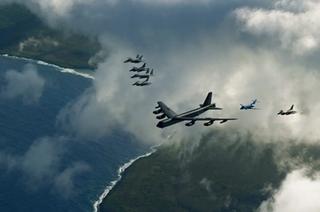


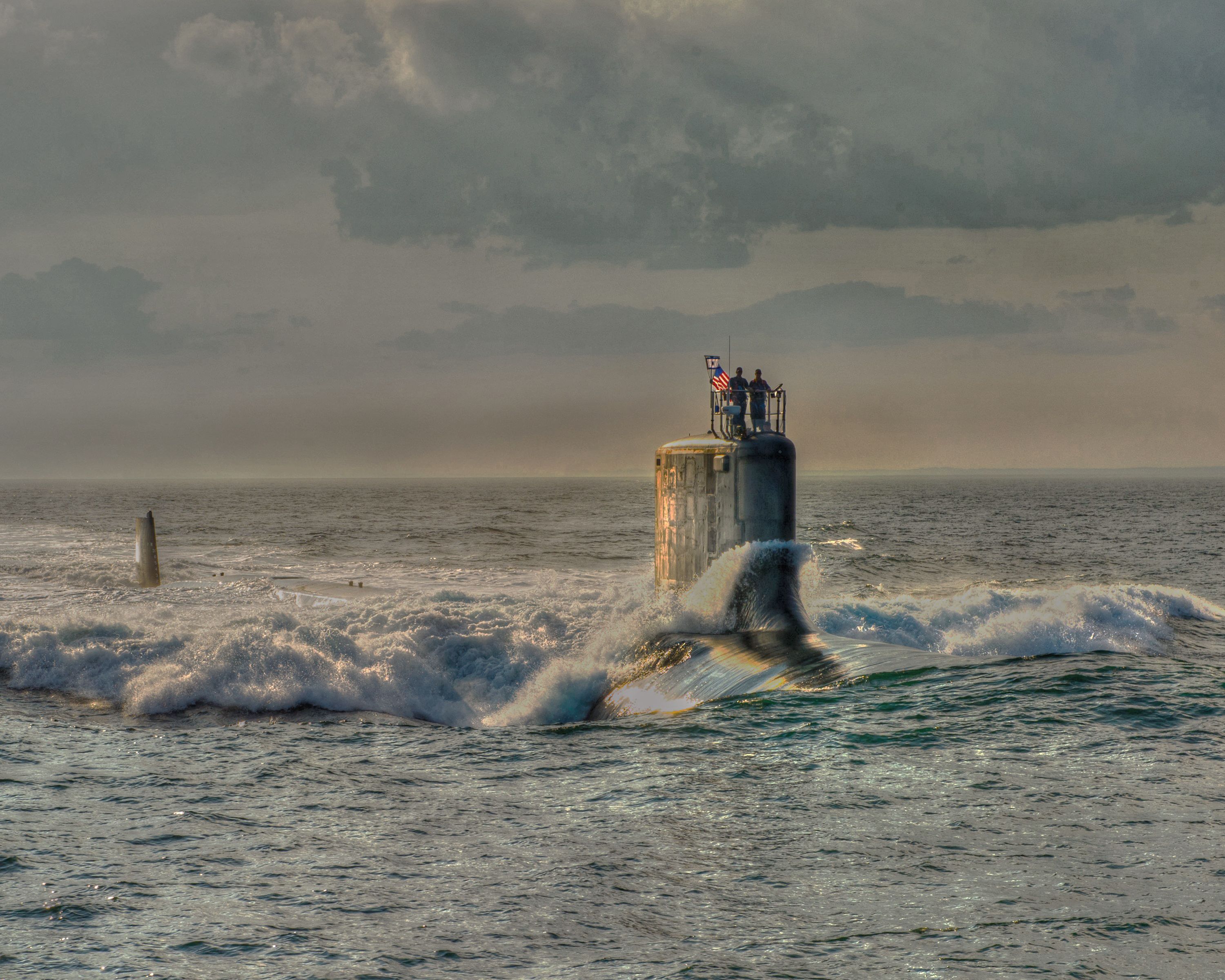.jpg?rect=0,80,3000,1989&fp-x=0.5&fp-y=0.44772296905517583&w=320&h=212&fit=crop&crop=focalpoint&auto=format)


